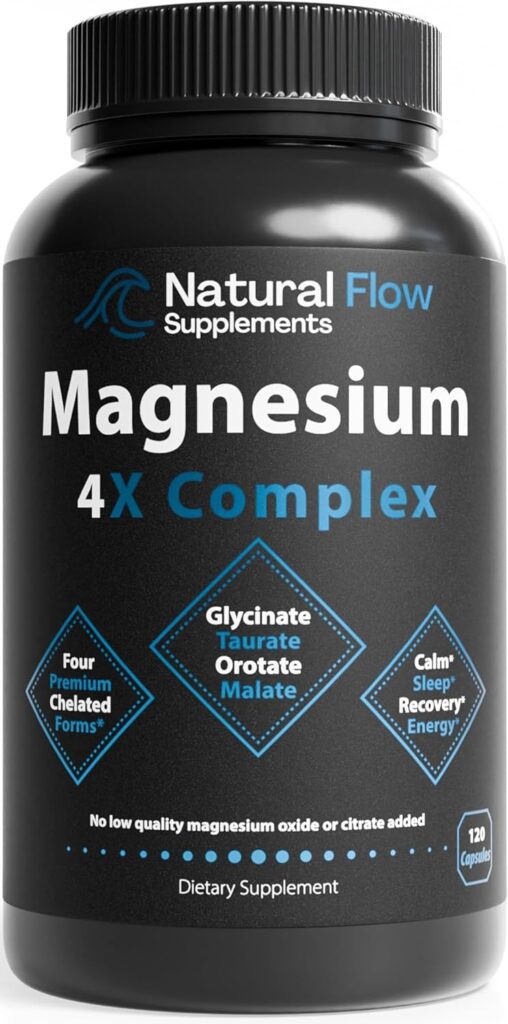Sleep is one of the most important aspects of our overall health, yet so many people struggle to get enough quality rest.
Among the different stages of sleep, REM (Rapid Eye Movement) sleep is particularly crucial because it’s the stage where the brain is most active, dreams occur, and the body consolidates memories and processes emotions.
Poor REM sleep can leave you feeling groggy, forgetful, or emotionally drained, making it essential to take steps to support deep, restorative sleep.
In this post, we are going to explore 5 ways to boost REM sleep, starting with what REM sleep is.
Let’s dive in!
What Is REM Sleep?
REM sleep is a unique stage of the sleep cycle where your brain activity resembles wakefulness, but your body remains in a state of temporary paralysis to prevent acting out dreams.
This stage plays a critical role in learning, memory, mood regulation, and even physical recovery.
Adults typically spend about 20–25% of their sleep in REM, and disruptions to this stage, caused by stress, poor sleep habits, or nutrient deficiencies, can negatively affect your mental and physical health.
5 Ways to Boost REM Sleep
1. Take a Magnesium Supplement
Magnesium is a mineral that supports relaxation, nerve function, and healthy sleep cycles.
By calming the nervous system, it helps you fall asleep faster and stay in the deeper stages of sleep, including REM.
Magnesium glycinate or malate forms are particularly effective, as they are gentle on the stomach and highly absorbable.
Out of all of the magnesium supplements I’ve tried, Natural Flow’s 4x Magnesium is my personal favorite.
Natural Flow Magnesium is my go-to for supporting deep, restorative REM sleep.
Its premium blend of magnesium glycinate, taurinate, malate, and orotate is highly absorbable, gentle on the stomach, and helps calm the nervous system so you can fall asleep faster and stay in the restorative stages of sleep.
Just one serving supports relaxation, reduces nighttime restlessness, and helps you wake up feeling refreshed and ready for the day.
Simply take 2 capsules per day and you’re good to go!
2. Keep a Consistent Sleep Schedule
Going to bed and waking up at the same time every day helps regulate your circadian rhythm, which in turn enhances your REM sleep.
Even on weekends, try to stick to your routine to prevent disrupting your body’s natural sleep-wake cycle.
Consider falling asleep during the hours of 9-11 PM, with 6-8 hours of sleep per night.
3. Limit Screen Time Before Bed
Exposure to blue light from phones, tablets, and computers can interfere with melatonin production, making it harder to enter deep REM sleep.
Create a wind-down routine that avoids screens for at least 60 minutes before bedtime.
4. Manage Stress Through Relaxation Techniques
Stress and anxiety can significantly reduce REM sleep.
Practicing meditation, deep breathing, or gentle yoga before bed can help calm your mind and create the optimal environment for restorative sleep.
5. Optimize Your Sleep Environment
A cool, dark, and quiet bedroom promotes uninterrupted sleep cycles, which is essential for achieving sufficient REM sleep.
Consider blackout curtains, white noise machines, or a comfortable mattress and pillows to support your body’s natural sleep needs.
Boost REM Sleep
Prioritizing REM sleep is essential for both mental and physical health.
By incorporating magnesium, maintaining a consistent sleep schedule, limiting blue light exposure, managing stress, and optimizing your sleep environment, you can support deeper, more restorative REM sleep.
Over time, these habits can help improve memory, emotional well-being, and overall energy levels, leaving you refreshed and ready to tackle the day.
Thank you for reading!
Affiliate Disclosure
Some of the links on this site are affiliate links. This means that if you click on the link and purchase the item, we may receive an affiliate commission at no extra cost to you. I only recommend products or services that I believe will add value to my readers, however, some (not all) do pay us to be on this blog. Your support and theirs help keep this blog running, and I genuinely appreciate it.
Medical Disclaimer
The information provided on this website is for educational purposes only and is not intended as medical advice. This blog or the writer is not a licensed healthcare professional, and the content should not be used as a substitute for professional medical diagnosis, treatment, or advice. Always consult with your physician or other qualified healthcare provider before starting any new treatment or making any changes to your healthcare routine.
